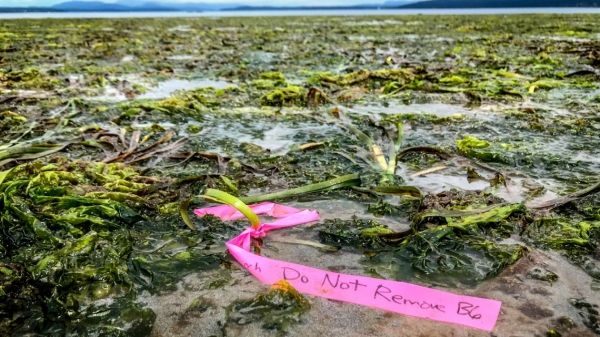In an oceanic omen for climate change’s intensifying effects, Cornell-led research shows that seagrass – through large swaths of intertidal meadows in the Pacific Northwest – suffers from a lesion-filled wasting disease. The grasses’ once-vibrant plant root systems are deteriorating, too. The research was published Nov. 10 in the journal Frontiers in Marine Science.
“Not only are we seeing more seagrass wasting disease outbreaks, we’re seeing a severe impact within the vital nutrient stores of these plants in the roots – so they become compromised late in the growing season, setting them up for a harder winter,” said co-lead author Olivia Graham, a doctoral student in the field of ecology and evolutionary biology.
The other lead author is Lillian R. Aoki, a former postdoctoral researcher in the Department of Ecology and Evolutionary Biology, in the College of Agriculture and Life Sciences.
Continue reading at Cornell University
Image via Cornell University


